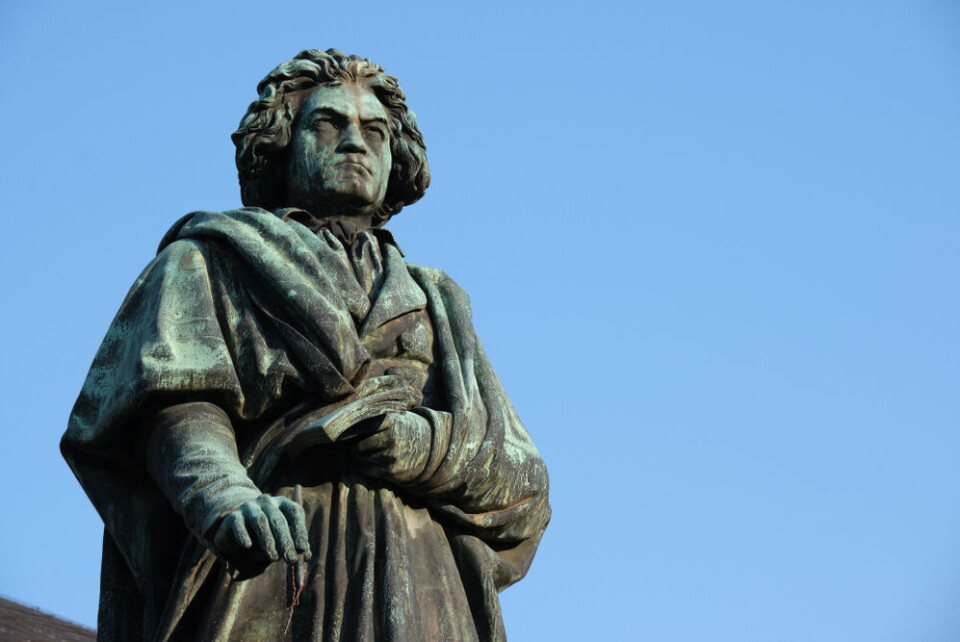-
Residents ordered to stay home due to high risk of avalanche in French Alps
One person has been injured in an avalanche in Val Thorens, while thousands of homes are without power
-
People in France snubbing US travel, report travel agents
The political context, weak euro against the dollar, and border issues have all been blamed
-
Reaction to François Hollande's call for France to create refugee status for US researchers
Former president lends support to scheme for scientists reportedly 'forced into exile' by the Trump administration
Beethoven's ‘skull parts’, found in France, returned to Austria
The bone fragments will now be studied in a bid to shed light on the composer’s multiple health conditions

Parts of a skull thought to belong to German composer Ludwig van Beethoven are being returned to Vienna after having been discovered in France.
The composer died in the Austrian capital on March 26, 1827, at the age of 56, from a mysterious illness.
Experts believe they may be able to use the 10 bone fragments to help shed light on Beethoven’s health and the circumstances around his death.
Forensic pathologist Christian Reiter has said these bones were “of great value”.
‘Their place is in Vienna’
American businessman Paul Kaufmann, who inherited the bones in a bank safe in 1990, told a press conference on Thursday (July 20): “Their place is here, in Vienna.”
They have been donated to the Medical University of Vienna.
Mr Kaufmann found the skull pieces in the safe in a bank on the Côte d'Azur. He said: “There were several treasures, including this box with ‘Beethoven’ written on its surface.”
He believes the bone pieces were picked up by his ancestor Franz Romeo Seligmann, a Viennese doctor who helped exhume the composer's bones for study in 1863.
The pieces were then passed down from generation to generation, and changed countries as the Jewish family fled the Nazis in the 1930s.
Health investigations
The bones are now undergoing tests to confirm their authenticity, although the results are likely to take six months to come back.
Beethoven is thought to have suffered from many health conditions, and it is hoped that further research into these bone fragments may help provide more information about his life and health.
Forensic pathologist Mr Reiter said: “This was Beethoven's wish. It's not about [just] keeping a relic in a box.
Beethoven is known to have written a letter to his brothers in 1802, in which he expressed his wish that his illness should be made public after his death and investigated.
The skull pieces have already been somewhat investigated before. In 2005, X-rays in the US suggested that he may have suffered from lead poisoning, possibly from lead drinking cups and medication containing lead and mercury, which were frequently used at the time.
However, a study published earlier this year, in March, which was based on DNA analysis of strands of the composer’s hair, instead suggested a possible genetic link to liver disease and hepatitis B.
His condition was likely aggravated by this, causing or worsening cirrhosis of the liver, further worsened by excess alcohol consumption.
However, investigations have so far failed to identify why the composer became gradually deafer as he got older, which was also a source of grief for Beethoven before he died.
Beethoven was born in Bonn, Germany, in 1770. As well as a composer, he was a celebrated pianist. He moved to Vienna at the age of 21.
Read also
‘I played bad classical music because the male composer was famous’
First music from prehistoric French shell in 17,000 years
From poverty to glory: Life of legendary French singer Edith Piaf
























